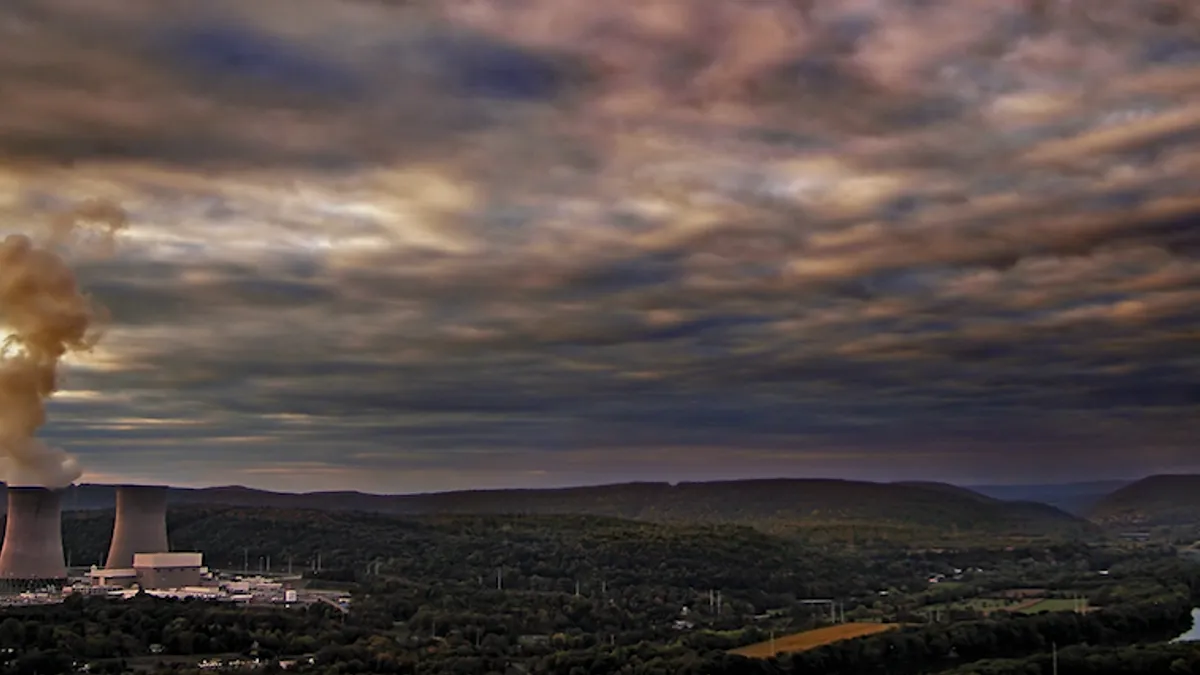Dive Brief:
- Three Democratic senators in New Jersey's legislature have drafted new legislation to financially support the state's struggling nuclear plants. Public Service Enterprise Group (PSEG) has been pushing for subsidies of about $350 million annually over 10 years.
- The new legislation says PSEG must prove the subsidies are necessary and calls for new efficiency standards and solar rules.
- The new legislation is reflective off a change in New Jersey leadership. The state's new Gov. Phil Murphy (D) replaced Gov. Chris Christie (R) earlier this month, who "pocket-vetoed" a previous version of this bill earlier this month.
Dive Insight:
Newly-seated Murphy has reportedly been active in helping to shape the bill, and the changes are reflective of new leadership in the state. The state wants to keep the nuclear plants online because of their zero-carbon energy, but the change in governors highlights the different relationship Republicans and Democrats have with the industry.
The new bill establishes a Nuclear Diversity Certificate (NDC) program that could provide up to $40 million annually to PSEG, which has said its Salem and Hope Creek plants will be losing money within a couple of years. The company will not operate them at a loss, and will shutter the plants without financial support.
U.S. News & World Report spells out some of the differences: Having to prove the plants need financial assistance is the largest change, but the new bill also calls for energy efficiency standards to be updated, support for solar and wind generation, and a provision allowing neighborhoods to invest in renewable energy.
The issue of how to reconcile state policies and subsidies with wholesale energy markets, which are regulated at the federal level, is being debated now. One workaround that states have used is to have subsidies that recognize nuclear's attributes, such as carbon-free energy, rather than the energy itself.
The proposed bill would create NDCs "representing the environmental and fuel diversity attributes of one megawatt-hour of electricity generated by an eligible nuclear power plant selected by the board."
In December, PSEG CEO Ralph Izzo told a joint committee of state lawmakers that cheap natural gas would force the two plants into the red within two years — which could raise power prices and carbon emissions, he said. Several other states have passed laws to support nuclear plants facing similar issues, including New York, Connecticut and Illinois.














